On 18th of June this year the Daily Mail published an article on the dangers of quartz worktops for the stonemasons who cut and polish them. As is often the case with this kind of journalism, the article is pretty horrifying, and may well cause customers in the UK to wonder about their own worktops, or whether or not buying solid stone worktops is a good idea. In this week’s blog we want to look specifically at quartz worktops and the danger of silicosis.
The issue that the Mail has picked up on has to do with the cutting of the quartz – not its production. The plants that make the slabs are full of big automated machines; the article and the research it is based on looks at worktop firms like ours – fabricators who cut the stone, shaping it and polishing it for your kitchen.

The Daily Mail
The first thing that must be said is that silicosis is a terrible disease. On that point, the Mail has it absolutely right. It is caused when regular, heavy exposure to silica dust causes inflammation and scarring in the lungs. Silica in the stone industry’s unregulated past took many lives, especially in Scotland where the high silica sandstone used in the construction of Edinburgh’s New Town became infamous. It is estimated that 23 of the 70 men who worked on the Scott Monument (pictured here) died from silicosis.
But secondly, it has to be said that standards of health and safety regarding stonemasonry and silica have improved a great deal since the late 19th century. There are huge variations around the world, of course, but the UK is one of the best in terms of health and safety. There is even significant variation across the EU; the research cited in the Daily Mail took place in small stone cutting businesses in Southern Spain.
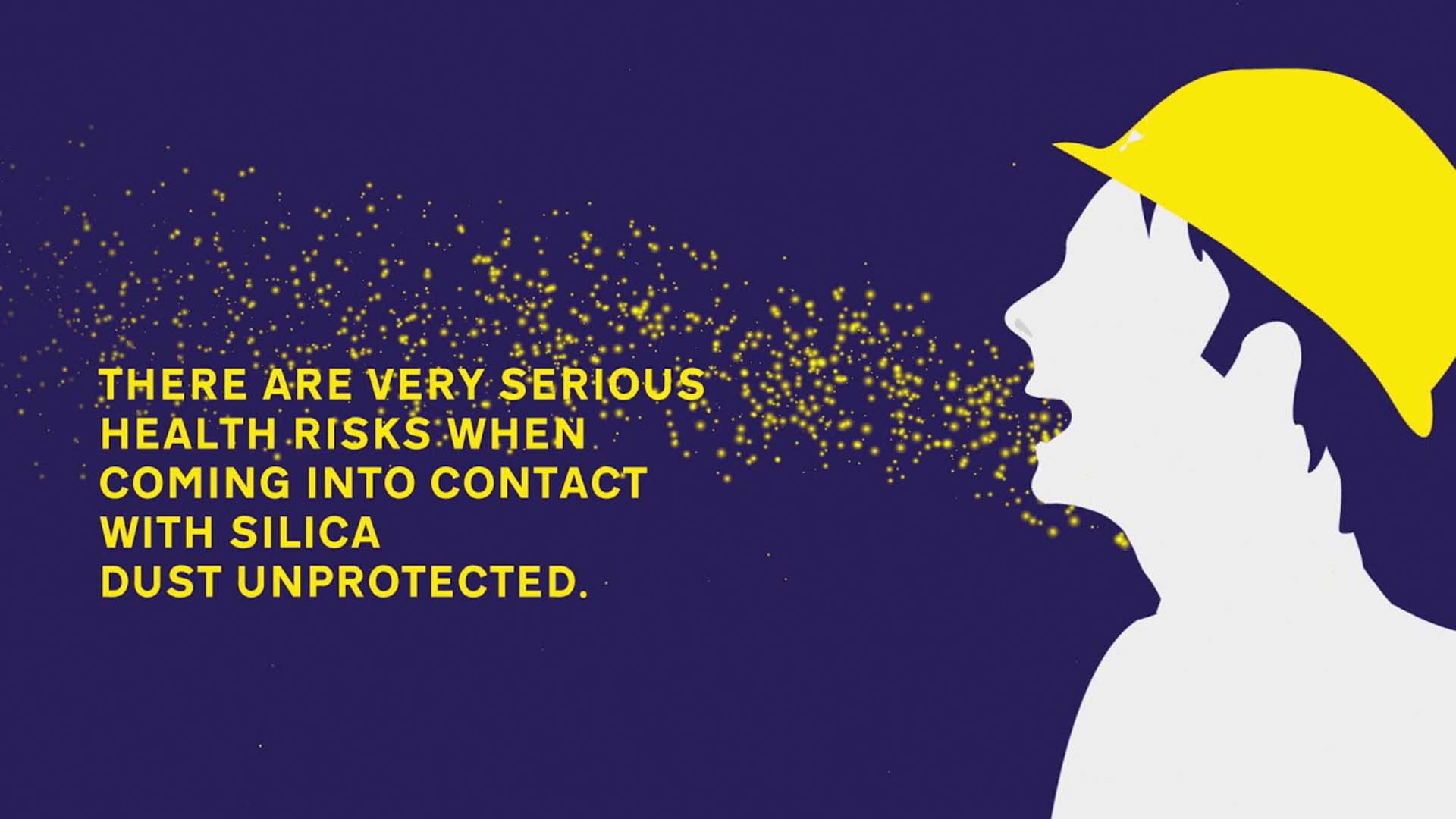
So, what can we say in response to the Mail’s article? I have split things down into a few key questions:
Do quartz worktops represent a health hazard for me or my family?
The answer is no. Quartz materials are exceedingly stable and there is zero risk of any dangerous dust formation over the long haul.
But what if there is dust on installation? What if we need to do any cutting on site? We do sometimes cut upstands in the garden or driveway. Very occasionally, due to a particularly large hob or fragile stone, we finish cutouts in the kitchen itself. Does the dust produced constitute a hazard?
Our fitters do their best to clean as they go, using a vacuum to extract the dust immediately from any cutting or polishing site. But some dust there may be.
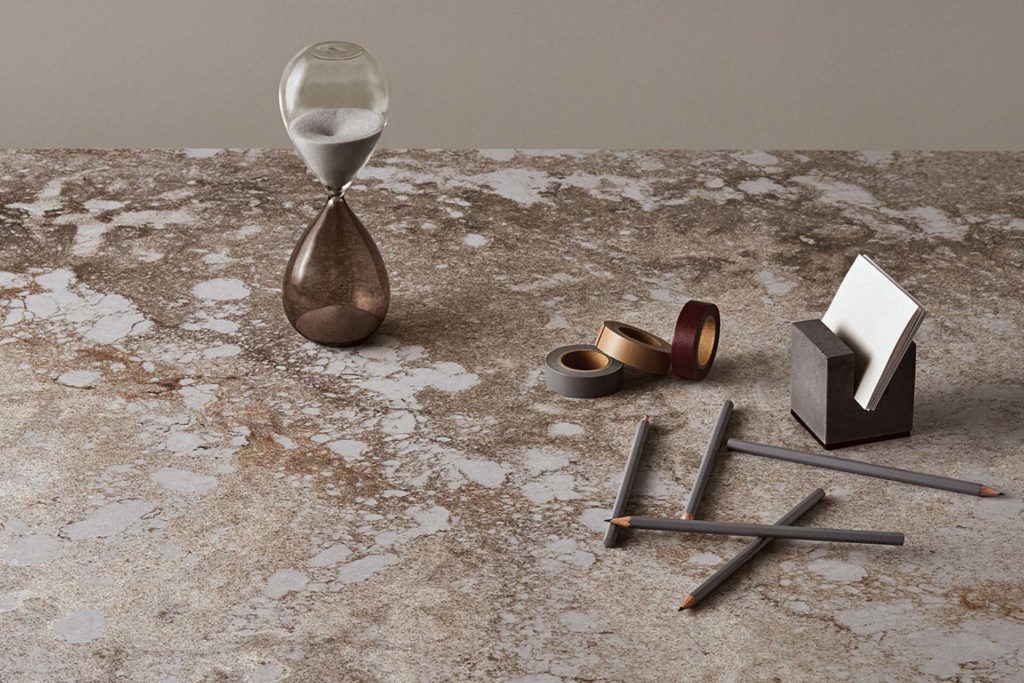
The NHS website page on silicosis is helpful. It defines the disease as “a long-term lung disease caused by inhaling large amounts of crystalline silica dust, usually over many years.” Later on the page it says, “Silicosis usually develops after being exposed to silica for 10-20 years, although it can sometimes develop after 5-10 years of exposure. Occasionally, it can occur after only a few months of very heavy exposure.” A single production of dust during installation of stone worktops in a kitchen should not be cause for concern.
How do you control risk for the stonemasons on your staff?
There are a number of ways in which serious stone companies can attack the dust problem:
1 Whenever possible, cutting happens under a water spray, avoiding dry cutting and polishing
Keeping the work wet vastly reduces the dust danger. Wet particles of dust are heavier: they fall to the floor and are washed away. Wet work is massively safer. However, wet cutting doesn’t eliminate all dust, and inhaling any wet particles of dust that do remain airborne brings its own hazards. Masks and PPE (see below) are still important.
Dry cutting and polishing is the exception, not the rule, for fabricators like ourselves – and yet articles like the one in the Mail always include pictures of dry cutting in tiny workshops with the resultant clouds of lethal dust.
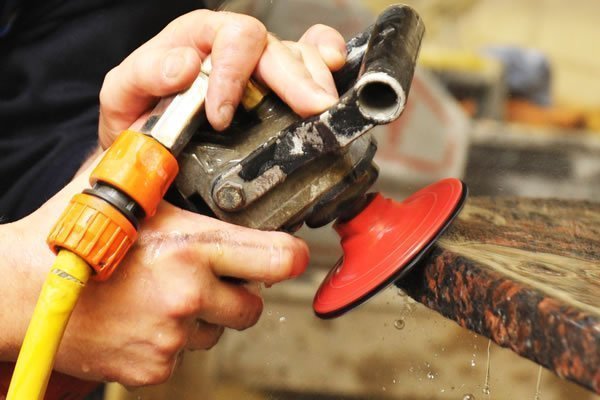
2 When we have to work dry, we extract the dust as close as possible to the cutting point
Some materials (marble and limestone) and some techniques (shaping curves and edge profiles) require dry work. Dust is produced – but if it can be taken out of the air immediately, there will be far less risk of it reaching the faces and lungs of our staff.
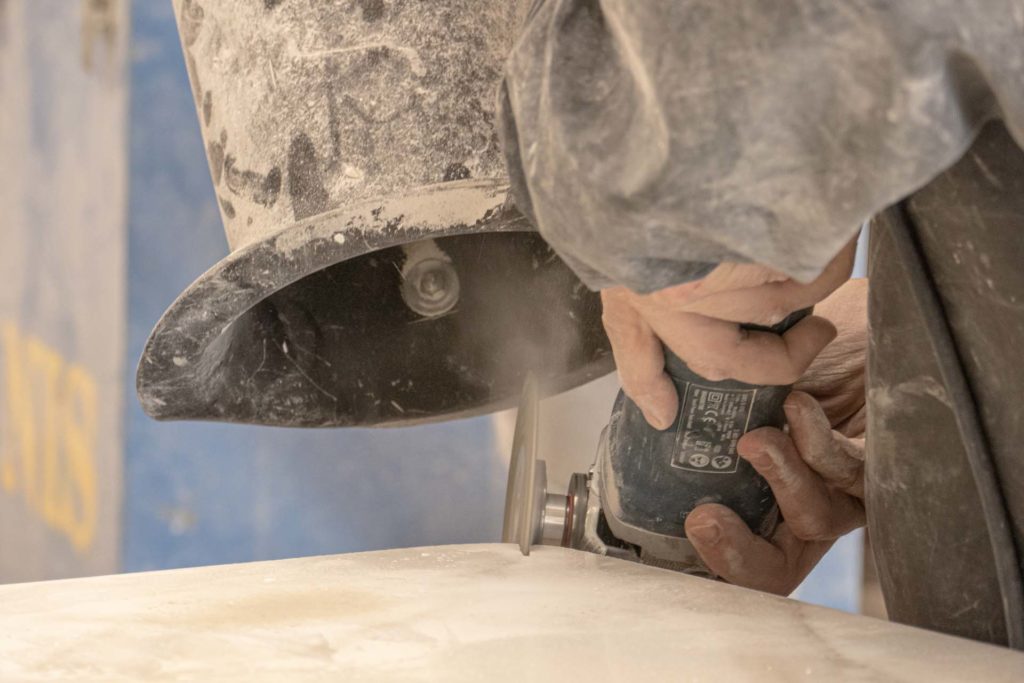
The Horizon Dust Extractor clears dust away from the cutting point itself
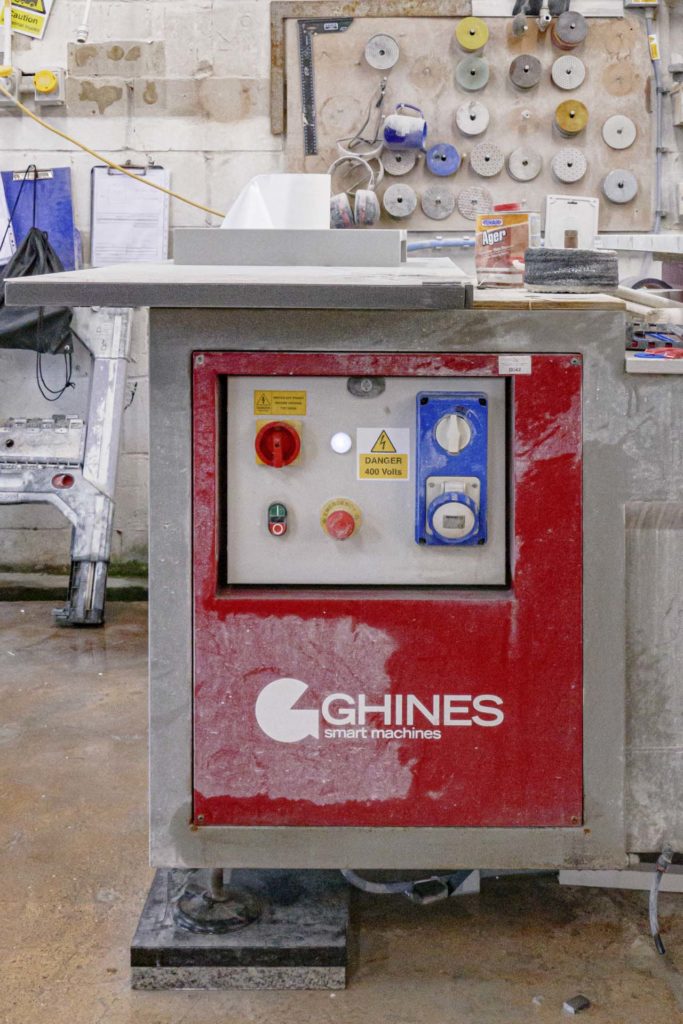
The Ghines polishing table…
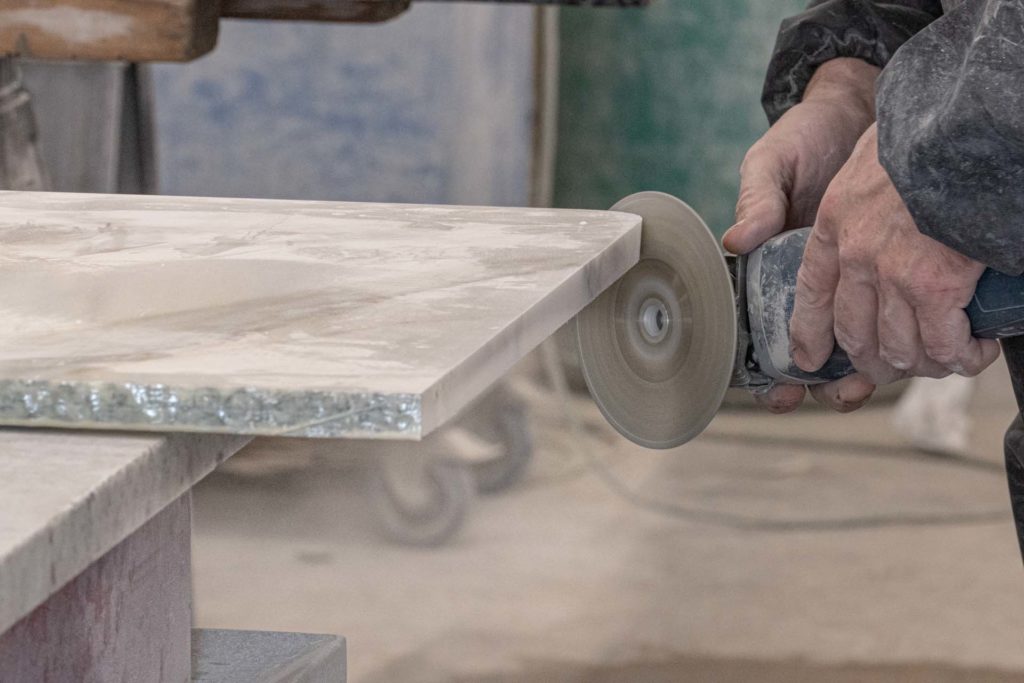
… effectively a rectangular vacuum cleaner, sucking the dusty air away from the cut or polishing point all around the job
3 Recognising that some dust will escape capture, clean the whole volume of air in the workshop
However careful we are with extraction from the cutting point, we know that some dust will escape. That is, let’s face it, practically the definition of dust – “it gets everywhere”! But there are ways to clean the whole volume of air in the work space: we have a water wall which can clean a large volume of air every minute.
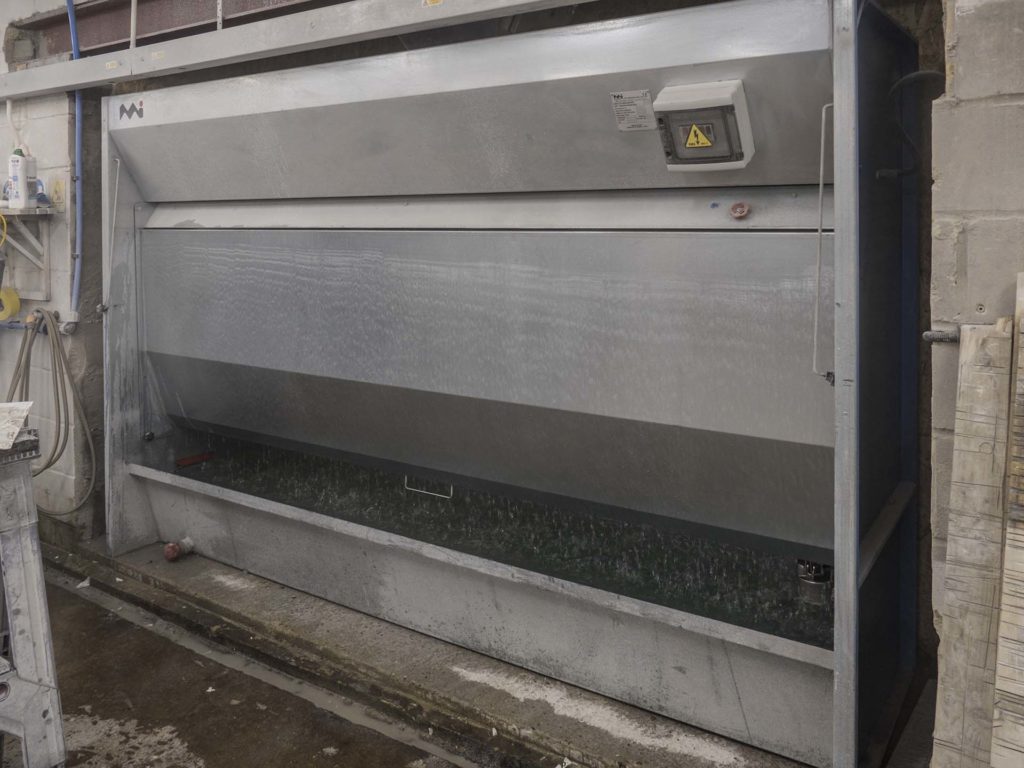
Our water wall cleans the dust out of all the air in the workshop
4 Provision and use of masks and other PPE
However good our extraction and air-cleaning processes are, we still want our staff to use Personal Protective Equipment in the workshop. We may get the concentration of dust in the air very low indeed, but we want none in the lungs.
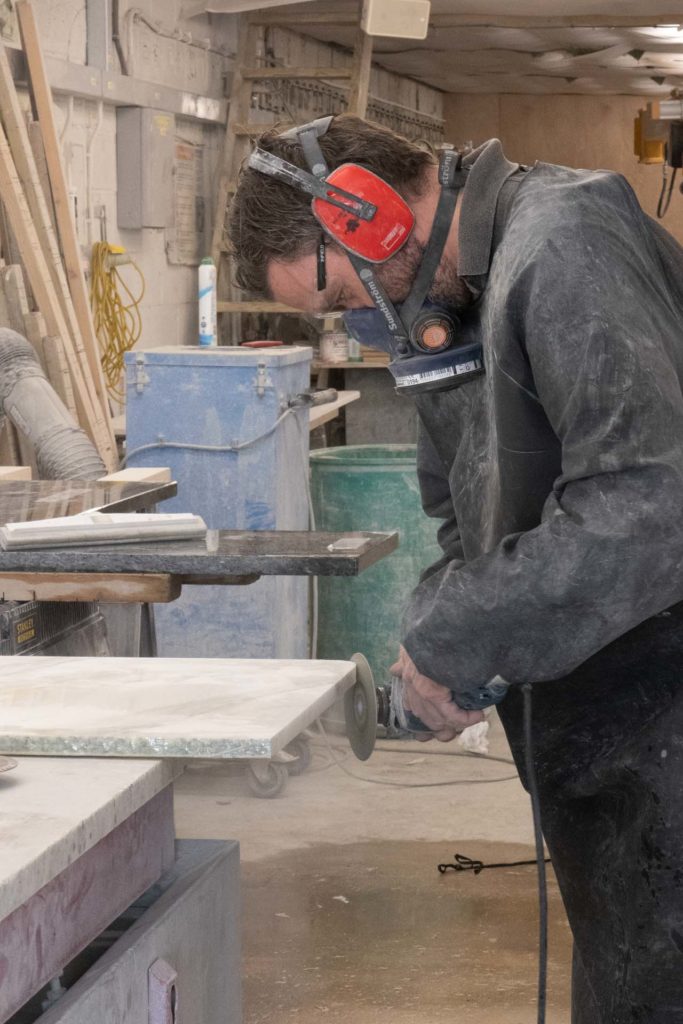
Ben, our workshop manager, working dry, but in full PPE.
5 Investment in automated processes which keep stonemasons and their lungs away from the cutting point
At Affordable Granite we have made massive investment in Computer Numerically Controlled equipment over recent years.Two huge CNCs carry a large part of the cutting and polishing load – and we are about to take delivery of a large CNC saw. These investments are good for speed, good for quality – but also good for the health and safety of our staff.
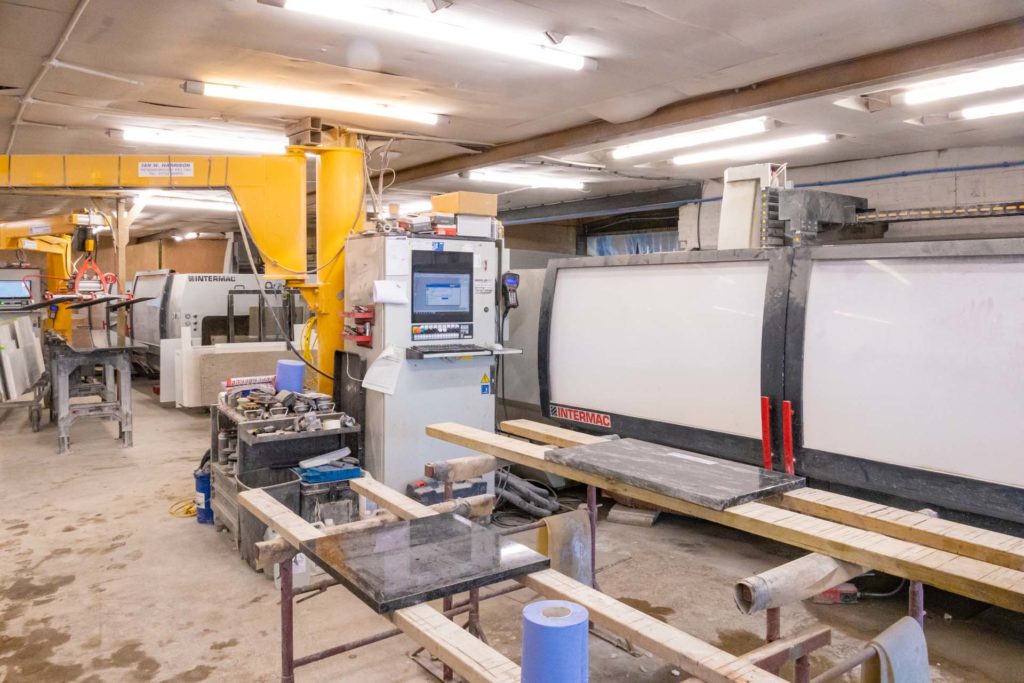
Our CNCs lined up and working in the workshop – efficient, consistent and clean!
What is the view of other reputable companies in the industry?
Affordable Granite is proud to be a member of the Worktop Fabricators Federation. Mem Zekayi, one of the founding Directors of the Federation, made the following comment in a WFF press release:
“While we can’t comment on whatever conditions researchers may have found in Spain, British worktop manufacturers and our suppliers have been aware for many years of the potential dangers associated with poor workshop practice.
“The UK worktop fabrication industry has led the way in insisting on wet-cutting, dust filtration ventilation and mechanical handling to reduce the risk to our workforce. Responsible worktop fabricators are very aware of the risks of crystalline silica and respirable dust, and have strict Health and Safety control measures in place, including appropriate regular health screening
“One of the core reasons we set up the Worktop Fabricators Federation is because of our concern to ensure customers can have full confidence the materials used to create their dream kitchen have been handled correctly. And that the fabricators and installers who create it are treated with proper respect for their health and wellbeing.

“In a free market, it is not possible to prevent anyone buying slabs of stone. Or from cutting and shaping it in customers’ gardens using angle-grinders or adapted joinery tools. This Spanish research serves as a reminder that one of the reasons properly-made stone worktops command a price premium is the significant investment professional fabricators have made in wet-cutting equipment and properly controlled workshop environments.
“We urge anyone who is thinking of commissioning a stone worktop to talk with a WFF member about what it means to do the job safely and professionally.”
Summing up
The point is… dry cutting of quartz for worktops is dangerous for stonemasons – it can, indeed, cause silicosis. We do all we can to avoid the technique, and when we must dry cut we have a range of protections in place to preserve the health of our staff. But newspapers do not sell on the back of that kind of news – the very worst cases are what make the headlines: the countries with the poor standards… the firms that don’t care… the workshops with the horrific working conditions… the guys who cut everything by hand, without masks, in your garden… and so on.
What catches the eye is always the worst case – Why else did I choose the most crass and prurient Mail headline from the last 10 years for the top of this article?! Thankfully, the Mail is capable of far better journalism than “Legs-it”, and our industry is characterised by far better health and safety than their article suggests. At Affordable Granite, along with our colleagues in the WFF, we are at the forefront of all that is best in health, safety and welfare. You can buy quartz worktops from us with that assurance.
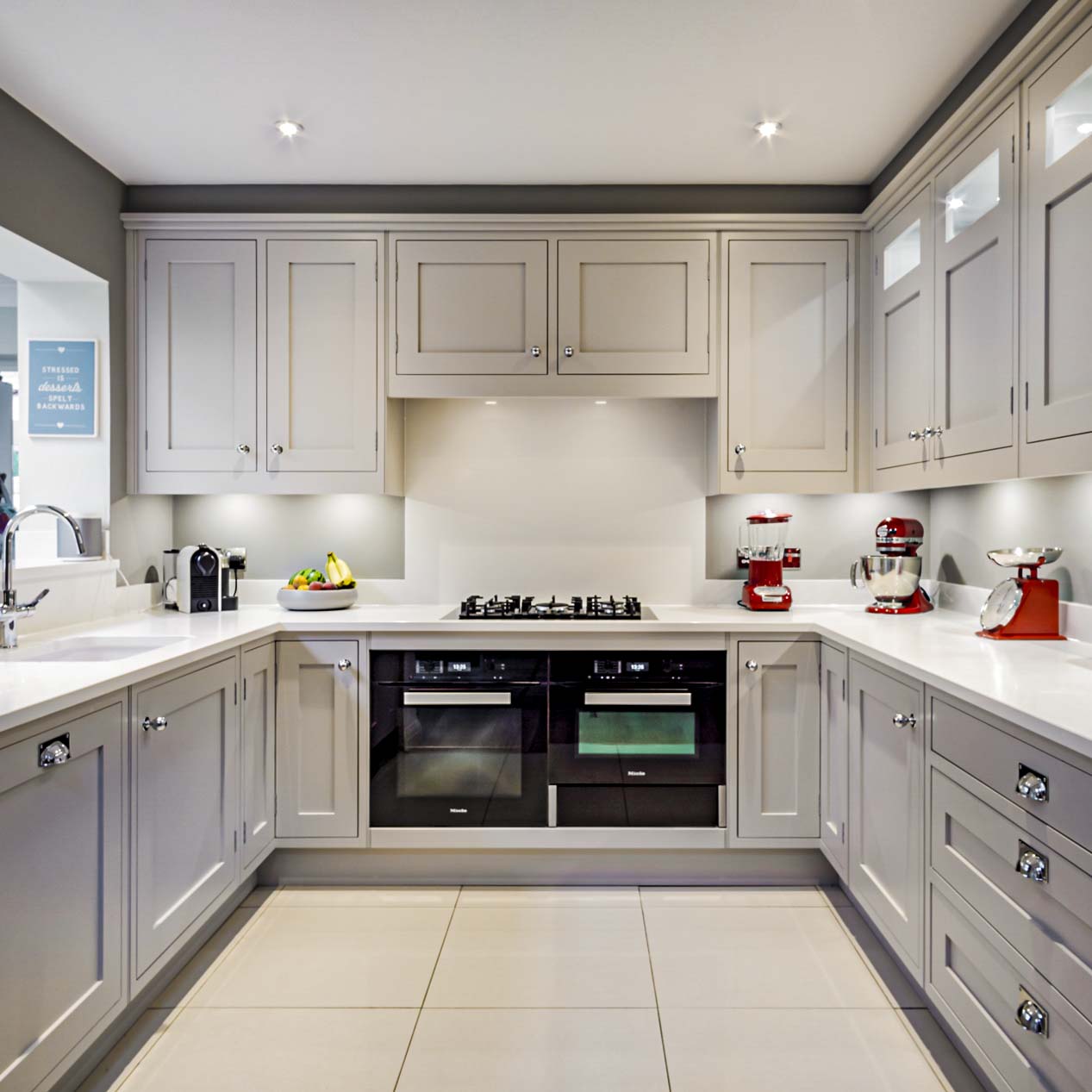
We are Affordable Granite, the leading installer of granite and quartz worktops in Surrey, Sussex and across the South East. If you would like any advice on kitchen and worktop design, we are here to help. We believe that we are among the very best when it comes to the health and welfare of our staff. Please do not hesitate to contact our sales team on 01293 863992 or by email on sales@affordablegranite.co.uk. Or you can use our quotation or contact forms.

